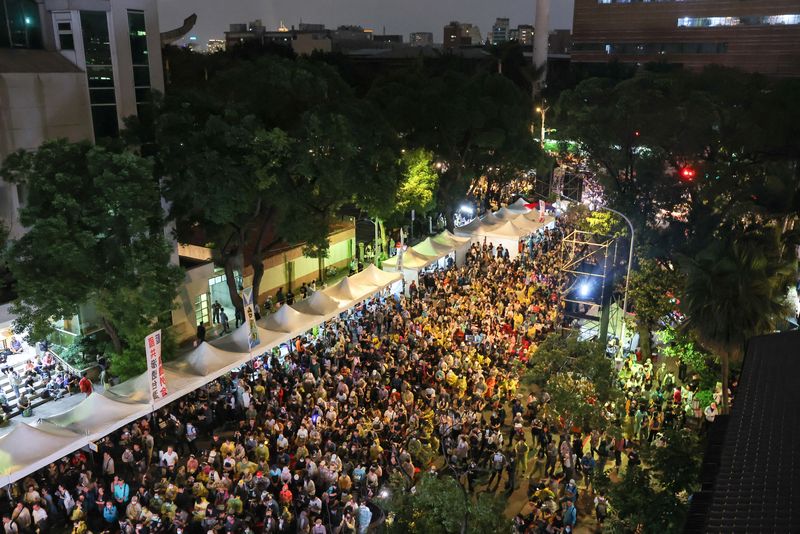TAIPEI (Reuters) – Taiwan's cabinet will reject and send back for review a parliamentary reform bill passed by the opposition on Tuesday that has drawn tens of thousands of people to protest and denounce Chinese interference.
The peaceful protests over reform and sometimes violent confrontations in parliament come amid wider concerns that China, which considers Taiwan its territory, is trying to influence Taiwan's politics and divide public opinion.
The Democratic Progressive Party (DPP)'s Lai Ching-te was elected president in January's election, but the party lost its majority in parliament, with Taiwan's main opposition Kuomintang (KMT) and the minority Taiwan People's Party jointly holding the most seats.
Congressional reforms would give lawmakers the power to require the military, private companies and individuals to disclose information they deem relevant, and they would have the power to punish those who don't cooperate.
It also makes it a criminal offense for government officials to disrespect parliament and requires the president to report regularly to parliament and answer questions from lawmakers, a first for Taiwan.
The Cabinet said in a statement late Monday that the bill risked violating the constitution and the separation of powers between the executive and legislative branches, and that it would send it back to parliament for reconsideration once it received the documents.
The Cabinet said it was its “duty” to do so, despite the proposal likely being rejected by Parliament.
The DPP argued that the reforms were forced through without proper consultation and that they were vague or an overreach of power, and said it supported lawmakers asking the Constitutional Court to interpret whether the law and the way the reforms were forced through were constitutional.
The DPP and many protesters have repeatedly accused the KMT of colluding with Beijing to force the bill through.
Several senior KMT officials have visited China this year in what the party says is a way to maintain lines of communication, but China has refused to engage in dialogue with Lai and the party, describing them as “separatists”.
The KMT strongly denies being pro-Beijing and says the parliamentary reforms are intended to make government accountable.
“The KMT denies the allegations of collusion with China as baseless and politically motivated,” the party said in a statement early Wednesday.
China considers Taiwan its territory, and Taipei rejects Beijing's claims of sovereignty, saying only the island's people can decide its future.
(Reporting by Ben Blanchard and Yimou Li; Editing by Michael Perry)


